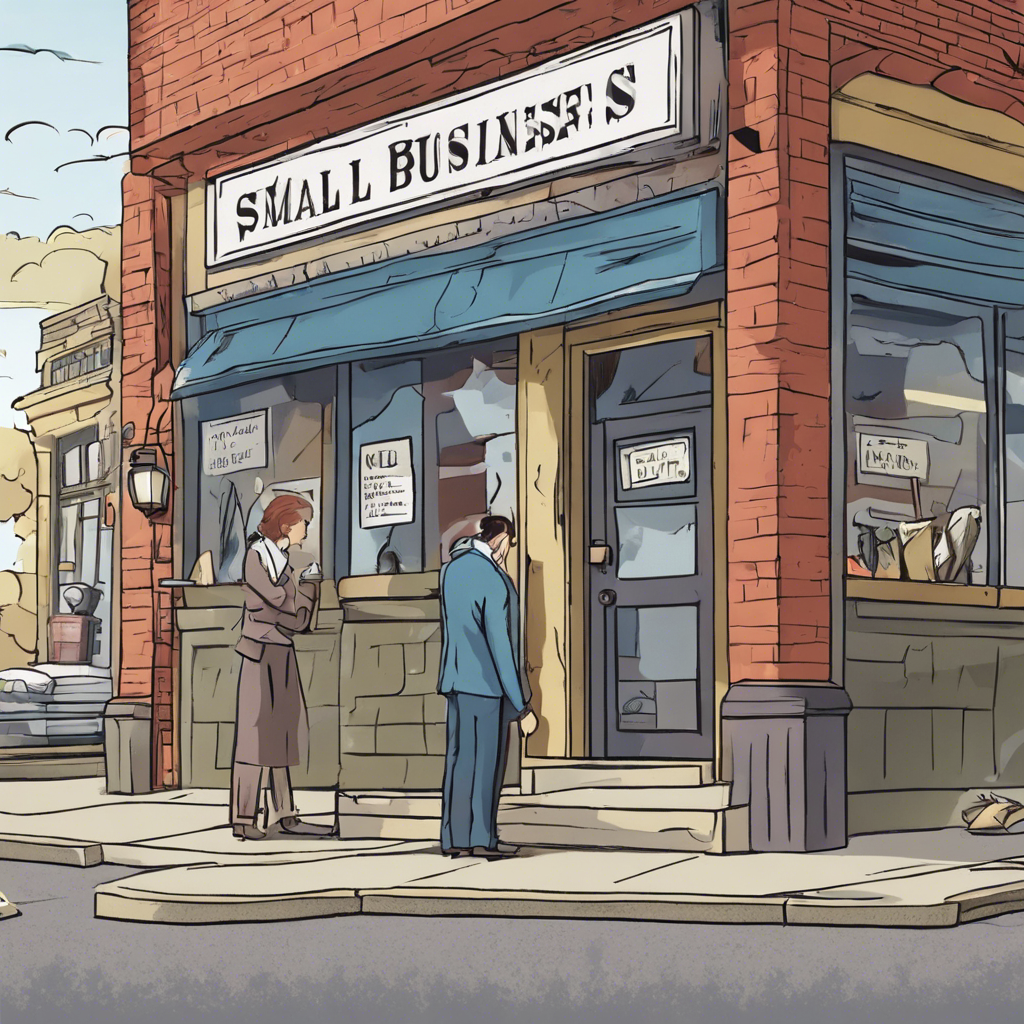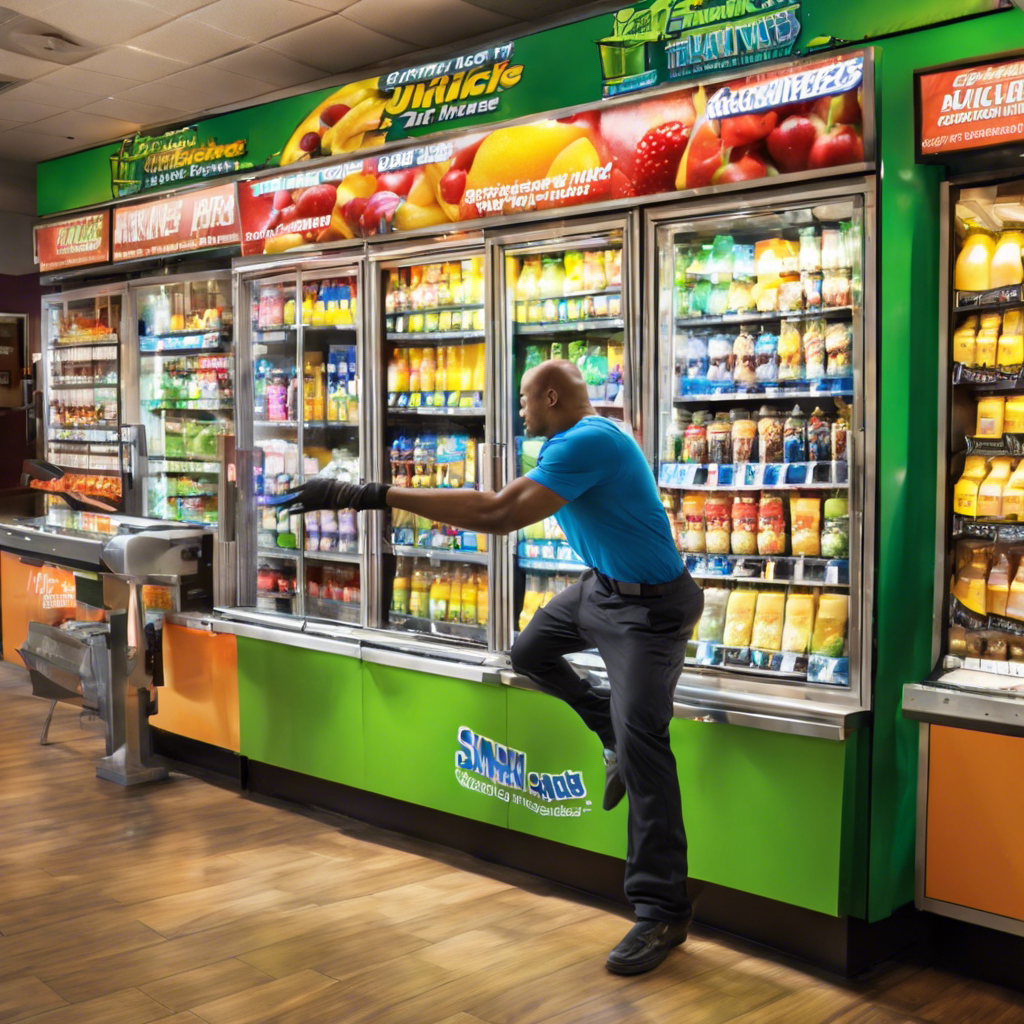Small Businesses Struggle to Secure Loans Amid Tightening Lending Standards

Banks’ tightened lending standards and rising interest rates pose challenges for small businesses seeking loans
Small businesses are facing significant hurdles as they strive to secure loans for growth and expansion. The tightening lending standards of both large and small banks, coupled with the increase in interest rates by the Federal Reserve, have created a challenging environment for small business owners. As a result, entrepreneurs are resorting to alternative funding options such as crowdsourcing, borrowing from friends and family, or putting their expansion plans on hold. This article explores the current state of small business lending, the impact of tightening standards and rising interest rates, and the experiences of business owners navigating this difficult landscape.
Tightening Lending Standards and Uncertain Economic Outlook
According to the Federal Reserve’s quarterly survey of senior bank loan officers, approximately 49% of banks reported tightening lending standards for small businesses during the July to September quarter. This figure has increased significantly from 22% in the same period last year. Loan officers cited the uncertain economic outlook as a key reason for the tightening. The collapse of three regional banks earlier this year and the possibility of stricter regulations have also contributed to banks’ cautious approach to lending.
Declining Approval Rates and Rising Interest Rates
Data from Biz2Credit reveals a decline in approval rates for small business loan applications. In June 2022, big banks approved 15.4% of small business loan applications, which has steadily decreased to 13% in October. Smaller banks have also seen a decline in approval rates, with only one in five funding requests being approved. Meanwhile, interest rates have surged, with the average interest rate paid on short-term loans reaching 9.1% in October, compared to 6.7% a year ago and 4.9% two years ago.
The Struggles of Small Business Owners
The challenges faced by small business owners seeking loans are exemplified by the experiences of Cheyenne Smith and Shantell Chambliss. Smith, the founder of Dakota Ridge, a company that manufactures cowboy rain boots for kids, found it difficult to access funding due to her limited financial history as a new business. Online lenders offered their services, but the terms were too strict, with high interest rates and weekly repayments. Smith ultimately borrowed from her mother to meet her capital needs.
Chambliss, the owner of Nonprofitability, a consulting firm, encountered similar difficulties. Despite having a solid business plan and a need for expansion funding, she was denied a loan by her bank. Non-traditional lenders approved her for a loan, but the exorbitant interest rates of up to 27% made it unfeasible. Chambliss has had to put her expansion plans on hold and is now considering crowdfunding as her next step.
Delayed Projects and Predatory Lending
Nate Hodge, co-founder of Raaka Chocolate, sought funding from banks and online lenders for remodeling projects. However, he was shocked by the high interest rates of 19% or more offered by online lenders. Frustrated by the predatory nature of these loans, Hodge turned back to his long-term investors for private loans. Despite this, they were unable to secure enough financing for all their renovation plans, forcing them to put some projects on hold.
Jen Rose, the founder of Bee Cups, faced challenges in securing a loan for a warehouse after outgrowing her garage. Despite having enough money for a down payment, she was turned down by two banks. Eventually, she secured a loan from Comerica Bank, but the interest rate had nearly doubled since her previous loan. Rose felt compelled to accept the loan due to limited options and the relative competitiveness of the rate.
Conclusion: The current lending landscape presents significant challenges for small businesses seeking loans. Tightening lending standards, uncertain economic outlooks, declining approval rates, and rising interest rates have created a grim environment for entrepreneurs. Many business owners are forced to explore alternative funding options or delay their expansion plans. The stories of Cheyenne Smith, Shantell Chambliss, Nate Hodge, and Jen Rose highlight the struggles faced by small business owners and the need for more accessible and affordable financing options. As the economy continues to recover, it is crucial for policymakers and financial institutions to address these challenges and support the growth of small businesses, which are vital to the overall health of the economy.










